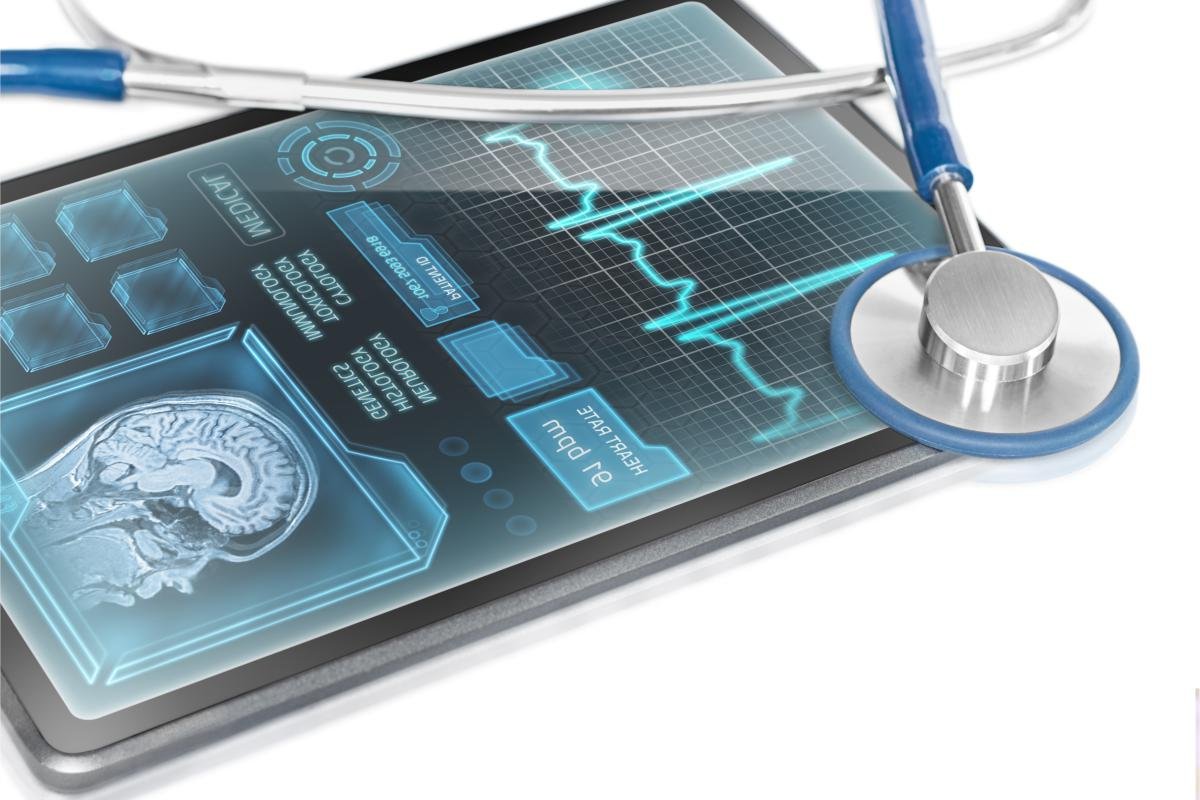Artificial Intelligence (AI) is at the forefront of transforming healthcare, offering unprecedented opportunities to enhance patient care, streamline operations, and accelerate medical research. As AI continues to evolve, its impact spans across various domains within healthcare, from diagnostics and personalized treatment to administrative tasks and public health initiatives. This comprehensive blog explores the profound implications of AI in healthcare, its current applications, benefits, challenges, and future trends shaping the industry.
Understanding AI in Healthcare
Artificial Intelligence, a branch of computer science focused on creating intelligent machines capable of performing tasks that typically require human intelligence, has found numerous applications in healthcare. AI systems use algorithms and data to analyze complex medical information, make predictions, and support clinical decision-making processes with speed and precision.
Applications of AI in Healthcare
1. Medical Imaging and Diagnostics
- Radiology: AI algorithms analyze medical images such as X-rays, CT scans, and MRIs to detect abnormalities and assist radiologists in making accurate diagnoses. For example, AI can highlight areas of concern in mammograms to aid in early breast cancer detection.
- Pathology: AI-driven image analysis helps pathologists examine tissue samples more efficiently and accurately, detecting subtle patterns indicative of diseases like cancer or infections.
2. Personalized Medicine and Treatment Plans
AI analyzes large datasets, including genomic data, patient medical records, and clinical trial results, to identify patterns and correlations that guide personalized treatment plans. By considering individual genetic profiles, medical histories, and lifestyle factors, AI helps predict treatment responses and potential adverse reactions. In drug discovery, AI accelerates the identification of novel drug candidates by simulating molecular interactions and predicting their efficacy and safety profiles based on biological data.
3. Virtual Health Assistants and Chatbots
AI-powered virtual health assistants provide patients with personalized medical advice, answer healthcare-related queries, and offer support in managing chronic conditions. These assistants can schedule appointments, send medication reminders, and provide follow-up care instructions, enhancing patient engagement and adherence to treatment plans. Chatbots integrated into healthcare websites and mobile applications facilitate triage services, preliminary diagnosis, and immediate access to healthcare information, improving healthcare accessibility and efficiency.
4. Administrative Tasks and Healthcare Operations
AI automates administrative processes such as medical billing and coding, scheduling appointments, and managing electronic health records (EHRs). By reducing paperwork and minimizing errors, AI enhances operational efficiency and allows healthcare professionals to dedicate more time to patient care. Predictive analytics powered by AI predict patient admission rates, optimize resource allocation, and forecast healthcare trends, supporting informed decision-making and resource management in healthcare facilities.
Benefits of AI in Healthcare

1. Enhanced Diagnostic Accuracy and Efficiency
AI technologies in medical imaging and diagnostics improve diagnostic accuracy by analyzing images and data with precision that exceeds human capabilities. Early detection of diseases leads to timely interventions, better patient outcomes, and reduced healthcare costs associated with late-stage treatments.
2. Personalized Medicine and Treatment Plans
By integrating AI-driven predictive analytics and genomic data analysis, healthcare providers can tailor treatment plans to individual patient profiles. Personalized medicine minimizes trial-and-error approaches to treatment, maximizes therapeutic benefits, and reduces adverse effects, optimizing patient care and satisfaction.
3. Improved Operational Efficiency
AI streamlines healthcare operations by automating repetitive tasks, reducing administrative burdens, and enhancing workflow efficiency. Healthcare organizations benefit from reduced operational costs, improved staff productivity, and enhanced patient care delivery, contributing to overall healthcare system sustainability.
4. Healthcare Access and Affordability
AI-powered telemedicine platforms and remote monitoring solutions expand access to healthcare services, particularly in underserved or remote communities. Virtual consultations and remote diagnostics enable patients to receive timely medical advice and interventions without geographical constraints, bridging healthcare gaps and improving health equity.
Challenges and Considerations
While AI holds tremendous promise for transforming healthcare, several challenges and considerations must be addressed to maximize its benefits responsibly:
1. Data Privacy and Security:
Protecting patient data from breaches and ensuring compliance with healthcare regulations (e.g., HIPAA in the United States) are critical priorities. AI systems must adhere to strict data privacy protocols to maintain patient confidentiality and trust.
2. Ethical and Legal Implications:
Issues such as accountability for AI decisions, biases in AI algorithms, and informed consent for AI-driven diagnostics and treatments require careful consideration and ethical guidelines.
3. Integration and Adoption:
Healthcare organizations face challenges in integrating AI technologies into existing workflows, training healthcare professionals in AI applications, and overcoming resistance to change. Effective integration strategies and stakeholder engagement are essential for successful AI implementation in clinical practice.
Future Trends and Implications
Looking ahead, AI is poised to continue driving innovation and transformation in healthcare across various fronts:
1. Advancements in Predictive Analytics:
AI-powered predictive models will enhance disease forecasting, patient risk stratification, and population health management, facilitating proactive healthcare interventions and resource allocation.
2. Robotics and Surgical Assistance:
AI-driven robotic systems in surgery improve surgical precision, reduce recovery times, and optimize post-operative care, leading to better surgical outcomes and patient recovery rates.
3. AI in Mental Health:
AI-based tools for mental health monitoring, therapy delivery, and personalized interventions will address the growing global burden of mental health disorders, improving access to mental healthcare services and outcomes.
Conclusion
Artificial Intelligence is reshaping the healthcare landscape, offering transformative opportunities to enhance patient care, improve operational efficiency, and advance medical research. While challenges such as data privacy, ethical considerations, and integration barriers exist, the potential benefits of AI in healthcare are vast and far-reaching.
As AI technologies continue to evolve, healthcare stakeholders—including policymakers, healthcare providers, researchers, and patients—must collaborate to harness AI’s full potential responsibly and ethically. By fostering innovation, ensuring regulatory compliance, and prioritizing patient-centered care, AI in healthcare promises to revolutionize healthcare delivery, improve health outcomes, and promote health equity on a global scale.
In summary, AI represents not just a technological advancement, but a paradigm shift towards personalized, efficient, and accessible healthcare. Embracing AI in healthcare signifies a commitment to leveraging cutting-edge technologies for the betterment of healthcare delivery and patient well-being in the 21st century and beyond.







